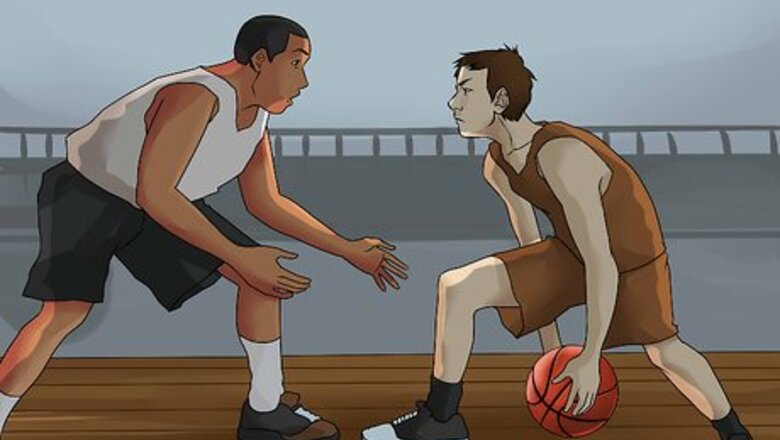
views
Interacting with Opponents

Don’t trash talk. When your competitive juices start flowing, it may be tempting to call members of the other team names or make fun of them. But you can’t win a game by running your mouth, and it only makes you look desperate. Focus on outperforming your opponent on the field or court, not on landing a good insult.
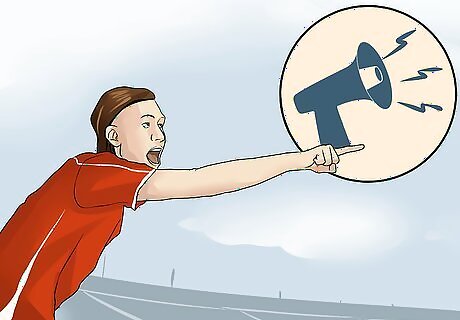
Control your temper. In the heat of a game, it can be easy to lose your cool, particularly if you’ve just gotten elbowed or the other team keeps scoring on you. Don’t let your anger affect your behavior, though. Sports are supposed to be fun, so don’t lose sight of the big picture just because things are going your way. Retaliating against another player if they’ve hit, pushed, elbowed, or otherwise tried to injury you is never a good idea. You’ll only wind up penalizing your own team. Avoid any violent confrontations with other players. If someone threatens you or you’re worried a situation is going to escalate, talk to the officials or a coach.

Respect the other team’s effort. Whether they’re outplaying you or unable to keep up with your team, it’s important to recognize that they’ve put in plenty of hard work to prepare for the game, just like your team has. Having respect for the other team is crucial to good sportsmanship. You may actually be able to learn something from your opponent, so keep an open mind. If they’re playing better than you are, you may be able to pick up some pointers for the next game.
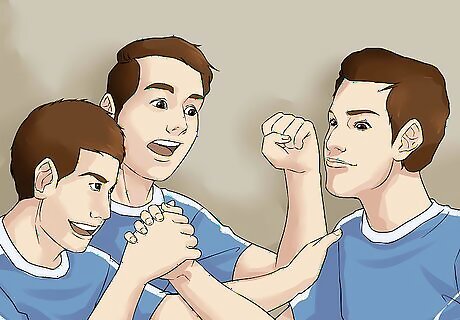
Be gracious in victory and defeat. When you win a big game, it’s easy to get carried away in your celebration. However, if you’re a good sport, you don’t gloat over a victory or try to make your opponents feel bad about their performance. Conversely, if you lose, you shouldn’t pout or downplay the other team’s victory. Whether you win or lose, get in the habit of congratulating the other team. It shows that you value the game itself and the effort that goes into it just as much as an actual victory.
Relating to Teammates

Be a team player. Even if you’re the best athlete on the field, you can’t win a game without your teammates. Everyone should share in team responsibilities, and do their part to ensure that the team is successful. You shouldn’t care about your own performance more than the team. It’s often little things that show you’re a team player, such as always arriving at practice on time or helping to clean up afterward. Because the behavior of every team member reflects on the team, you shouldn’t accept unsportsmanlike conduct from your teammates. Firmly but politely remind them that their behavior affects the entire team.
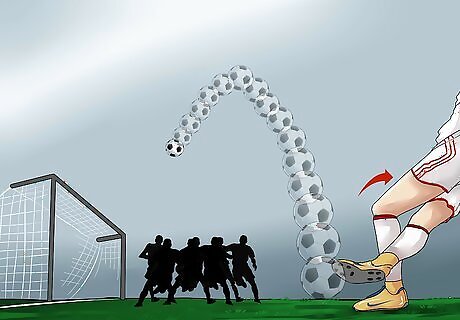
Support your teammates. Being a good sport means that you’re just as happy with their success as your own. Cheer on your teammates when they’re performing well, and offer encouragement to teammates who may have made a mistake or are in a slump. Be willing to share your knowledge of the game with your teammates. If there is someone who is struggling with a particular part of the game that you excel at, offer some tips and suggestions to help him or her improve. You should be receptive when teammates point out ways in which you can improve your skills too. Not everyone is good at the same aspects of a game, and you should take advantage of your teammates’ expertise to improve your skills.

Listen to your coach. He or she is looking out for the good of the team, and sometimes, that means your role may be reduced or changed. Showing good sportsmanship means placing the team’s needs above your own, so you should trust the coach’s judgement. If you disagree with a decision that the coach has made, have a polite discussion with him or her. Don’t start an argument or sulk over it. If the coach decides that someone else should start in your place, it’s normal to get upset. However, you must realize that it’s for the good of the team, and channel your frustration into working hard at practices so you’re ready to go for the next game.
Playing the Game With Good Sportsmanship

Familiarize yourself with the sport. Whether you’re playing for a school team, in a league, or just with your friends, you can’t be a good sport if you don’t understand the game that you’re playing. You should learn not only what it takes to be successful in that particular sport, but what you’re allowed to do and what you’ll be penalized for. You can find the rules and guidelines for most sports by doing a basic online search. If you’re new to sport, you may want to purchase a guidebook that provides all the rules and regulations, as well as tips on how to successfully play the game. Don’t be afraid to ask questions. Friends, family members, teammates, and coaches who are familiar with the game can help you understand it better because they have firsthand experience with the sport. In addition to following the rules, it’s important to respect the sport. You shouldn’t show off obnoxiously when you’re successful because that puts yourself ahead of the game.
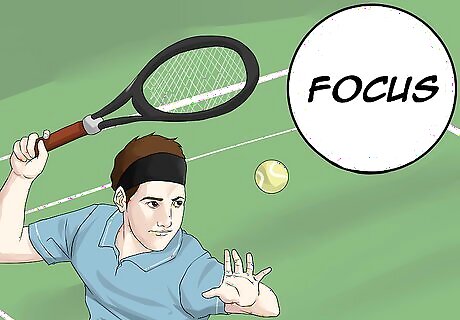
Play fair. Once you understand the rules and regulations of the sport, it’s important to always abide by them. That means that you shouldn’t look for ways to cheat or bend the rules to give yourself a competitive edge. You’ll find that winning doesn’t mean as much if you have to play dirty to do it.

Respect the officials. Sometimes, it can be difficult not to take it personally when a referee, umpire, linesman, and other official makes a call that goes against you during a game. However, it’s important to remind yourself that they are there to ensure that the game is played properly, so it’s their job to enforce the rules. In some cases, an official will make an error, and their call may be wrong. Avoid arguing over a missed or incorrect call, and understand that everyone makes mistakes. If you’re concerned with the calls that an official is making, bring it to your coaches' attention. They'll know the best way to address the situation, which may include lodging a formal complaint.




















Comments
0 comment